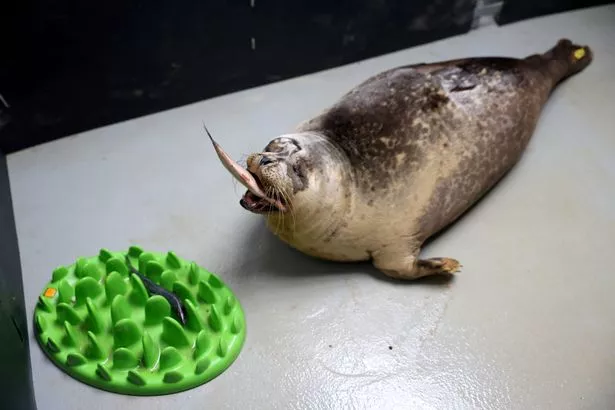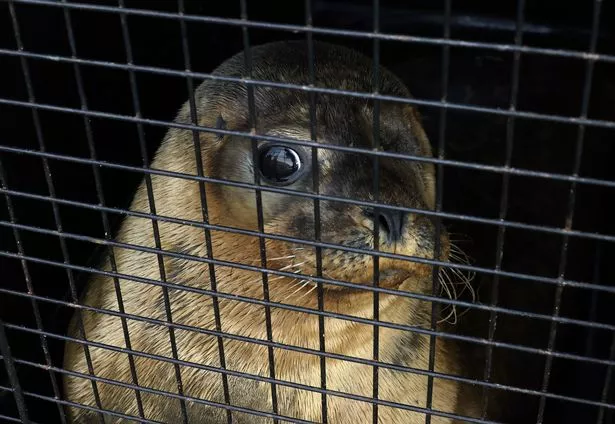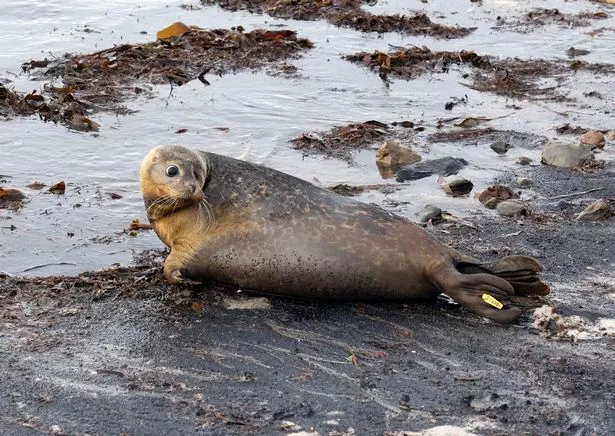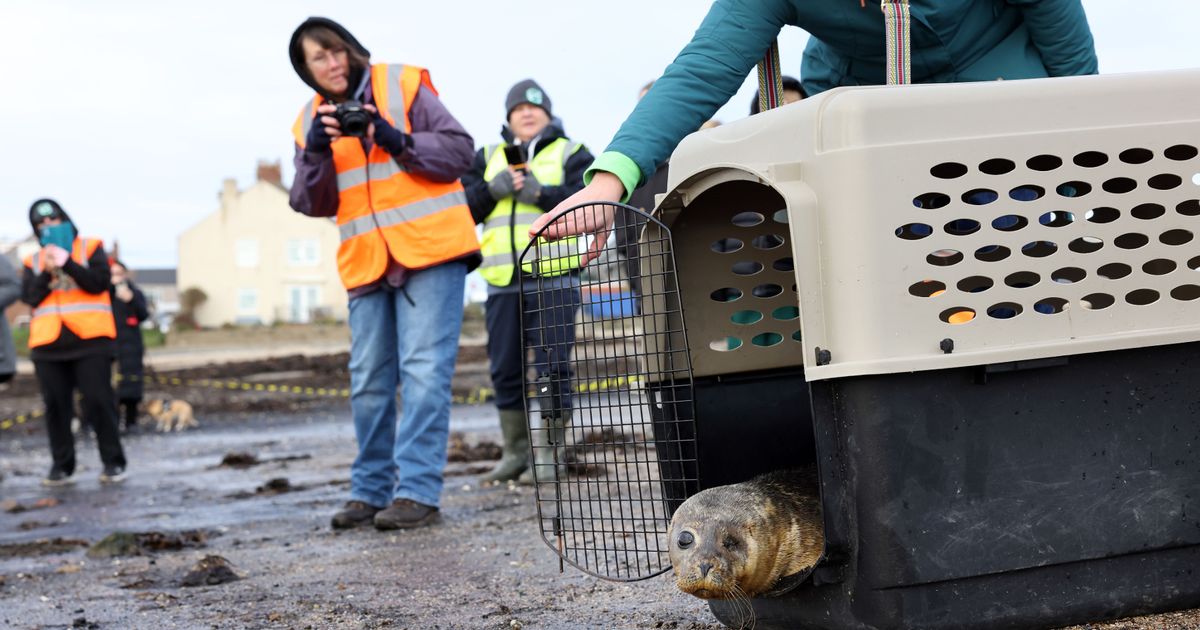There was hardly a dry eye on Newbiggin beach as vets, medics and volunteers waved six-month-old Popeye off into the North Sea
A one-eyed seal who has had more than four months of treatment and rehabilitation has been released into the wild at a Northumberland beach. Common seal Popeye was rescued by British Divers Marine Life Rescue (BDMLR) on Crimdon Beach in County Durham in July, when he was aged between seven and 10 days old.
He weighed less than nine kilograms, was extremely thin and dehydrated and had mouth rot when transferred to Tynemouth Seal Hospital, where volunteers noticed the pup also had a severe eye infection. He was named Popeye as part of the facility’s annual theme, which is cartoon characters this year.
Despite receiving medication, his eye ruptured and he was taken to the BDMLR’s North East Seal Triage (NEST) unit at Robson and Prescott vets’ Whorral Bank Hospital in Morpeth on August 26, undergoing a risky and complicated operation to remove his eye, which was ultimately successful.
Popeye was initially due to be released at the end of September, but then developed a further infection in his eye socket, and an abscess on his side. Since then, he has had further treatment from NEST and the vets at Robson and Prescott, and rehabilitation with Tynemouth Seal Hospital volunteers.
 Popeye catches a herring in the NEST facility(Image: Newcastle Chronicle)
Popeye catches a herring in the NEST facility(Image: Newcastle Chronicle)
Darren Martin, instructor and training manager at NEST, said that treating Popeye was a huge challenge, as his ruptured eye had to be kept clean at all times so as to avoid infection.
Ultimately, his treatment has been a success and in four months, Popeye has bulked up to 39kg, a healthy weight for a seal of his age. In the wild, he could get as big as 150kg and live for up to 35 years, and having one eye shouldn’t pose too much of a problem as common seals primarily hunt with their whiskers.
 Popeye the common seal ahead of his release(Image: Simon Greener/Newcastle Chronicle)
Popeye the common seal ahead of his release(Image: Simon Greener/Newcastle Chronicle)
Veterinary nurse Melanie Scott released the catch on his carrier on Friday afternoon, after he was transported from NEST to Newbiggin-by-the-Sea beach. Popeye was the first seal that Melanie had anaesthetised in 40 years of veterinary nursing when his eye was removed – a difficult procedure as anaesthetic has to avoid the seal’s dive reflex.
She said: “It made me feel very honoured. I felt very emotional, there was hardly a dry eye on this beach.”
After leaving the carrier, Popeye had a last look at all those who had helped him on his journey before tentatively taking his first strokes in the freezing November North Sea. It is not yet known where he’ll end up, but there are common seal colonies at St Mary’s Island in Whitley Bay and on Teesside.
 Popeye the common seal has a last look at those who helped him on his way(Image: Simon Greener/Newcastle Chronicle)
Popeye the common seal has a last look at those who helped him on his way(Image: Simon Greener/Newcastle Chronicle)
Debbie Harrison-Hardy, BDMLR medic, said: “He can go wherever he likes, he can swim free as a wild animal.
“We don’t hold onto any seals, we don’t have captive seals. Our mission is to treat them and get them well enough to be wild.”
Nevertheless, Popeye has made a special mark on Debbie and all of the others who have helped him back to the wild. Debbie finished: “He’s a bit of a legend in his own right, he’s everybody’s sweetheart.”
Should anyone have concerns about injured or dead wild seals on North East beaches, they are advised to call BDMLR’s rescue hotline on 01825 765546 so that a medic can come and assess the situation.
